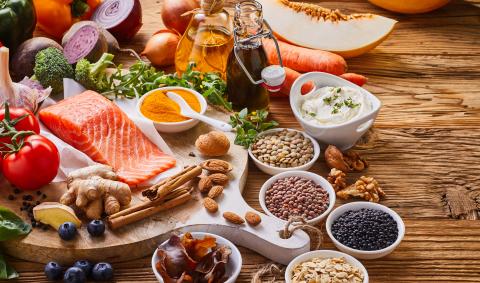
High blood pressure, known as hypertension, is a global health concern; according to the World Health Organization, about one in every four adults is living with high blood pressure, defined as >120/>80mmHg.
Risk factors that can affect blood pressure include age and gender, but there are also modifiable risk factors such as unhealthy dietary habits, lack of physical activity, excessive alcohol consumption, and tobacco use.
If you are experiencing high blood pressure, the following foods have been shown to help lower your levels. Aim to eat off this list every day to keep your levels in the healthy range:
- Spinach, kale, and swiss chard are green leafy vegetables all high in potassium and can have a direct effect to balance the sodium levels in the body and lower blood pressure. Leafy greens are also rich in nitrates, which relax blood vessels to reduce pressure.
- Garlic has been studied and shown to decrease cardiovascular disease specifically blood pressure reduction, total cholesterol, triglycerides, and inflammatory markers. This herb can be smashed and incorporated at the end of cooking a meal, put in homemade salad dressings, or infused in healthy oils.
- Blueberries are full of flavonoids called anthocyanins, linked to lowered blood pressure.
- Oats, millets, and cracked wheat are all whole grains rich in protective micronutrients (B vitamins, potassium, folate, iron, zinc, copper, magnesium and selenium), fiber and protein that studies indicate help lower blood pressure, helping to reduce your need for medication.
- Fish, flaxseeds, olive oil, avocados, nuts, and hempseeds are omega-3 fatty acids that lower small dense LDL particles and increase healthy HDL. It is best to stay away from unhealthy fats such as margarine, vegetable shortenings, and partially hydrogenated vegetable oils as they lead to atherosclerosis due to the increase in LDL cholesterol.
- Beets are rich in nitrates, which have been linked to lowered blood pressure due to relaxation of blood vessels and improvement of blood flow.
Author: Mariah Everts, CCNM Integrative Cancer Clinic Intern
Please note that the information provided in this blog post is for informational purposes only and should not be considered as medical advice. It is essential to consult with your healthcare provider or a qualified professional before making any healthcare decisions or taking any actions based on the information presented here.